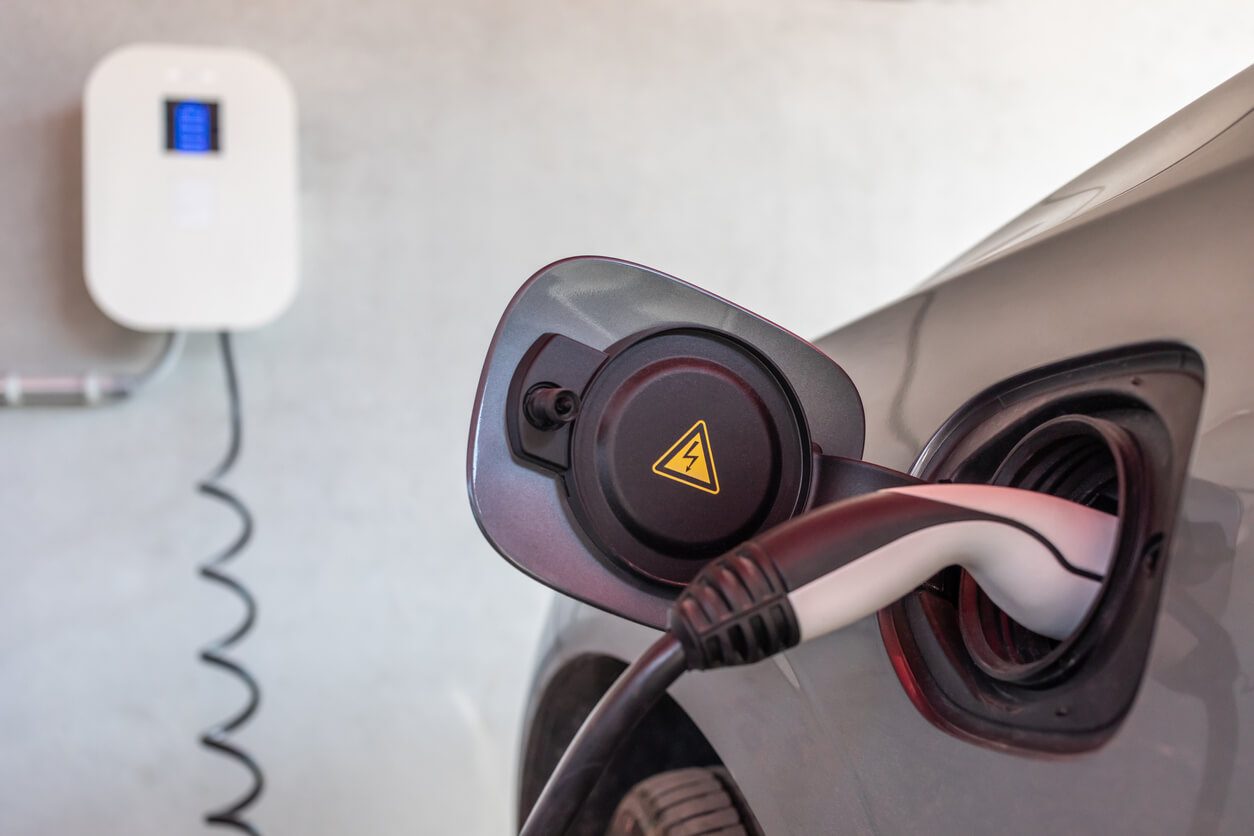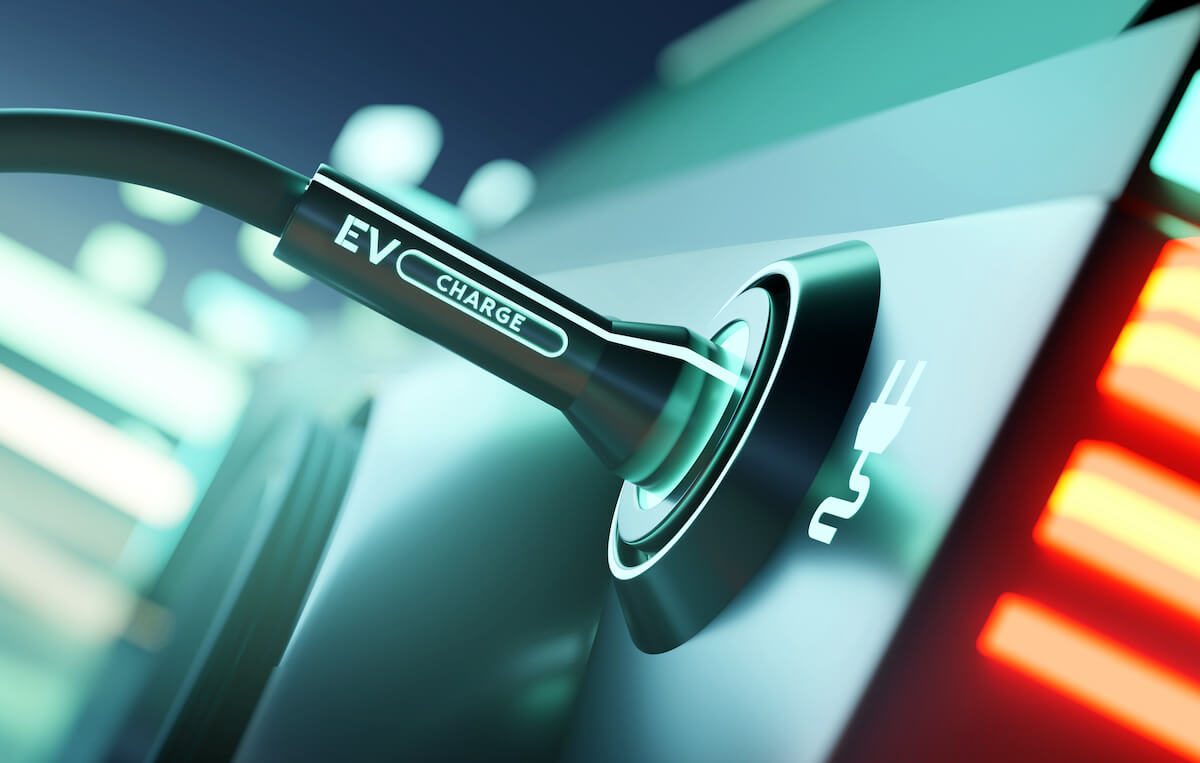Charging EVs at Home: Fleet Manager Considerations
If you’re considering the implementation of electric vehicles in your fleet, one of the most important aspects is the location of your charging stations. There are three main options — home, depot, and public — and as a fleet manager, you may opt for one or a combination of all three.
Home charging stations are popular since they allow drivers to charge their vehicles at home, but do they make sense for your fleet? In this guide, we’ll explore the benefits and challenges of charging EVs at home, including who handles electricity reimbursement and the considerations for the popular question — what happens to home EV charging equipment when an employee leaves the company?
Can I Convert My Take Home Fleet to EVs?
If your employees are used to taking home their company vehicles, moving your fleet to electric vehicles will be a natural transition. If this is new to your organization, first you need to determine whether you are comfortable with employees being allowed to take home their fleet vehicles. Factors that may influence this decision include:
- Vehicle type — Before you send your employees home with vehicles it’s important to make sure the EV fits properly in their driveway or garage.
- Infrastructure costs and space — There are a lot of factors that influence EV infrastructure costs, including equipment installation and maintenance. Your organization will also need enough space to install charging stations that will adequately serve all your EVs. If space is limited, it will be worthwhile to explore home charging stations.
- Where your employees are located — If some (or all) of your employees live further away and do not need to visit your headquarters or main facility before embarking on their routes, home charging stations make a lot of sense.
If you are looking to offer home EV charging to your employees, it’s important to have a detailed policy in writing that outlines who is responsible for what — including installation, maintenance, and electricity costs — and what happens if an employee leaves the company.
Benefits of Home EV Charging
- Saves time — One of the main advantages of home EV charging is the time-saving factor. Employees can charge their vehicles overnight and start their day without needing to visit a depot charging station, which is especially beneficial if it’s completely out of the way.
- Decreases reliance on public charging — Home charging decreases the reliance of public charging, which can still be helpful for EV drivers who need a quick charge during longer trips. Home charging is also a good way of ensuring EVs are fully charged for the next day.
- Low electricity rates — The most inexpensive residential electricity rates are during off-peak hours, which is typically from 10 p.m. to 5 a.m.
- Reduces infrastructure needs — Employees charging company cars at home reduces the need for an extensive, and expensive, EV depot charging installation.
- Employee benefit — If your company covers the cost to install chargers in your employees’ homes, this could be a helpful benefit when recruiting potential employees.
Challenges With EV Home Charging
Navigating charging infrastructure and reimbursement costs is a major consideration that should be detailed in your home EV charging policy. Some fleet management companies have programs in place to simplify this process, streamlining operations and allowing your business to “make it happen” without needing to manage so many moving parts on your own.
If you have a small team or would prefer to handle this manually, you should consider if your company or organization will be responsible for all costs, including the purchase and installation of equipment. What about electricity reimbursement? If so, how does the reimbursement process work?
Lastly, one of the key questions to ask when it comes to home EV charging — what happens if (and when) an employee leaves? While investing installation costs into an employee’s home could be cheaper than depot charging, it’s important to remember that you are putting money into someone’s home as opposed to your own facility.
Turnover is inevitable, which means you need to have stipulations in writing ahead of time regarding the ownership of EV charging equipment and any applicable penalties if the employee does not comply. Your company policy should make it clear, whether an employee leaves voluntarily or involuntarily.
EV Home Charging Considerations
Before you invest in EV home charging, here are some important questions to ask:
- Does the employee own their own home, rent, or live in a condo with an HOA? Depending on the circumstances, the employee may need permission or approval from a landlord or condo complex. In some cases, having a charger installed might not be possible at all.
- Does the employee have their own garage or driveway? This is a better, more secure setup for EV charging than shared parking.
- Is there enough capacity? Merchants Fleet, for example, has a program in which a few simple photos is generally enough to assess if a residence has sufficient power to have an EV charger installed. If there is doubt, a local electrician can be sent out to investigate.
Charger Selection, Installation, and Costs
Before embarking on any type of home EV charging plan, your policy should clearly define what type of equipment is needed and who will cover the cost. Will the company pay directly or will the employee be reimbursed? Costs for home EV charging include the charging station itself and any needed electrical work and associated labor costs. Plan whether and how to support your employees with an installer selection process that can include installer coordination and cost negotiation. While not every FMC has a dedicated team focused on fleet electrification, Merchants Fleet can help provide value through programs that handle reimbursement, installation, and coordination.
A key decision for a fleet manager to make is what type of charger you want your employee to use. While there are many choices on the market, consider the benefits of home chargers that use WiFi connectivity and networking to provide usage and energy consumption monitoring, This will enable you to understand the patterns of EV use and charging as well as energy usage and costs of powering up those EVs.
Electricity Reimbursement
If you’ve selected a networked charger for your home charging solution, you will know the amount of electricity used in your employees’ homes to power their EVs and be able to provide on-going reimbursement for their increased electricity bills. Telematics data is also important because it can confirm whether the EV charger is being used for non-company vehicles; it can also help prevent reimbursement fraud.
EV Home Charging Made Simple
The EV experts at Merchants Fleet have developed ClearCharge™ Home as an easy, end-to-end service for employee home charger installations and accurate energy reimbursement reporting. Merchants streamlines the process by ensuring charger compatibility for your fleet, coordinates installation through a licensed installer network, and provides fleet managers with electricity expense data for straightforward reimbursements. The result: home charging is finally simple enough to make fleet electrification accessible.
How it Works
- Select the Right Home Chargers for Your Application
- Receive a Quote from a Licensed Electrician
- Drivers Enjoy a Streamlined Installation Process
- Get Accurate Charger Monitoring and Energy Tracking
FAQs
What are the benefits of fleet EV charging at home?
Depending on where your employees live, charging EVs at home may save time and decrease reliance on public charging. Employees can also take advantage of low residential electricity rates that are often most inexpensive during the overnight hours. Plus, if you’re looking to save on facility and depot charging space, allowing employees to charge their vehicles at home will reduce your infrastructure needs.
How do I know if charging EVs at home makes sense for my fleet?
There are many factors that will influence this decision, including logistics and the cost to install and maintain equipment at an employee’s home. Our fleet electrification consultants are happy to help you navigate this process since there’s a lot to consider.
Do employers typically pay for installation costs?
In most cases, yes, and the costs are generally less than those for depot charging installation. Before your employees begin to have chargers installed on their property, it’s important to have a clear policy in place regarding equipment ownership and what happens when the individual’s employment ends.
What is the easiest way to reimburse employees for home EV charging costs?
If you’ve partnered with an FMC that provides EV services, an electrician can install a charger that will feed data directly to their systems so that you can easily reimburse employees for any electricity used at home to charge the EV.
Looking for Even More Information About Home EV Charging?
Our EV consultants have the experience and knowledge to answer all of your questions. Contact us today with any questions about electric vehicle charging, costs, planning, logistics or more.






